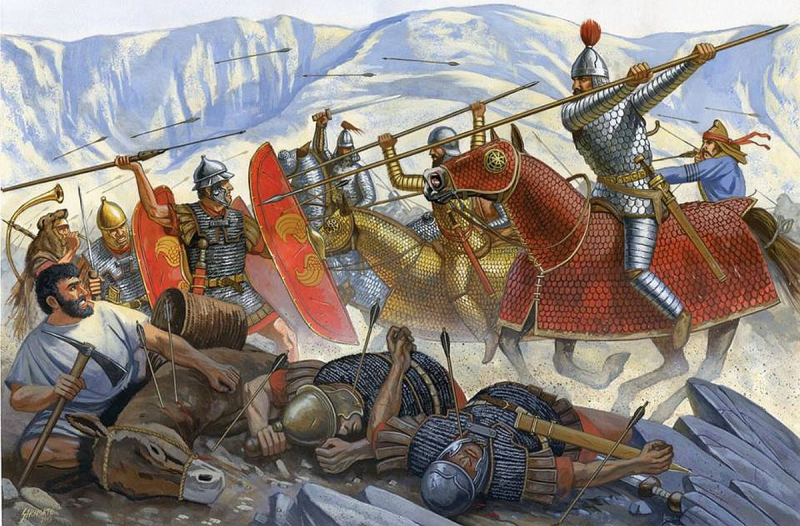Battle of Carrhae

One of the most embarrassing defeats in Roman history occurred in the Battle of Carrhae. It was the outcome of the Roman invasion of Parthia, and it resulted in the deaths of 20,000 Romans and the captivity of 10,000. The invasion of Crassus into Parthia without authorization led to the conflict. In Rome, Crassus, a member of the First Triumvirate, was the richest man. He decided to attack Parthia without the Senate's formal approval. In line with his plan, Crassus sent 35,000 heavy soldiers, 4,000 light infantry, and 4,000 cavalries into Syria in 55 BC. The Armenian king Artavasdes gave him an extra 6,000 cavalry.
He was urged by Artavasdes to travel via Armenia and to stay away from the desert. Crassus, however, disregarded the advice and the promise to assist with additional warriors. Near the village of Carrhae, he came upon Surena's army while leading his Roman army through the Mesopotamian deserts. Then, Crassus gave his men tactical instructions, but they were unsuccessful.
Surena assaulted Crassus from the opposite direction, sending forth horse archers to damage the Crassus army. In response, Crassus dispatched his son Publius to defend, but he killed himself before being taken prisoner by the adversaries. Surena delivered a letter to Crassus to bargain, ensuring Publius' death and the significant loss of Romans. Crassus' Roman troops forced him to see Surena even though he didn't want to. Crassus and his generals were slain during the violent confrontation that resulted from the discussion.
Date: 6 May 53 BC or 9 June 53 BC
Location: Near Carrhae (Harran), Upper Mesopotamia
Combatants: the Roman Republic against Parthian Empire
Result: Parthian victory













